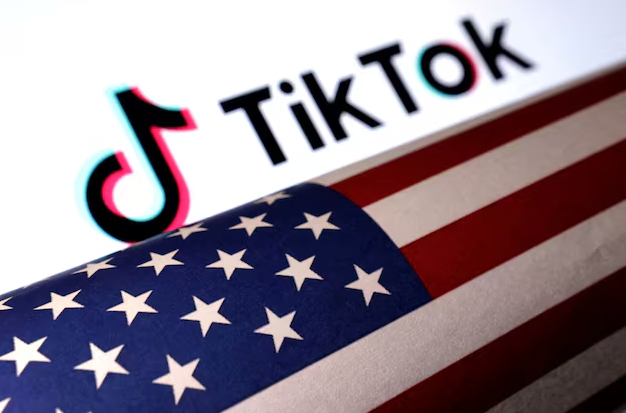TikTok is at the center of a pivotal court case as the US steps up its efforts to curb Chinese influence.
The US Court of Appeals for the DC Circuit has begun hearing arguments in TikTok’s challenge to a law that demands the social media platform’s Beijing-based parent company, ByteDance, to sell its US operations or face a ban.
The law, passed by Congress and signed in April, marked a significant move in Washington’s broader campaign to restrict Chinese-linked businesses in the US.
The crackdown has bipartisan support, driven by concerns over national security and economic influence, particularly in strategic sectors like artificial intelligence and advanced computing.
Last week, the House voted to blacklist Chinese biotech firms from federally-funded contracts, and more bills targeting China’s economic reach are expected.
The push to clamp down on Chinese interests has found favor among US voters, resonating across party lines.
However, TikTok’s case introduces unique political dynamics.
Former President Donald Trump, once an advocate for banning the app, recently reversed his stance, arguing that such a move would benefit Facebook’s Mark Zuckerberg.
Vice President Kamala Harris, who has a TikTok account, is expected to maintain the Biden administration’s cautious approach to the platform.
In court, TikTok defended its position, claiming that the ban violates free speech rights for its 170 million US users.
The Justice Department countered by emphasizing national security risks, citing ByteDance’s alleged data collection and content manipulation practices.
The three-judge panel appeared skeptical of TikTok’s arguments, but a final ruling is not expected until early December. If TikTok loses, the company has signaled its intention to take the case to the Supreme Court, with a January 19 deadline looming for the app’s potential ban in the US.
TikTok says it’s being singled out
Lawyers for TikTok argue the app is being unfairly singled out, claiming that forcing the shut-down of a service used by 170 million Americans is a gross violation of the First Amendment rights of US users.
TikTok’s lawyer Andrew Pincus argued that if the government wants to ban TikTok, it has to show what’s known in legal lingo as “strict scrutiny,” which means a compelling reason for doing so, and it must prove that it has exhausted all other ways of dealing with TikTok’s issues before banning. He said the government has failed both tests.
Circuit Judge Sri Srinivasan asked: What if the United States is at war with a country, and that country controls a media company in America. By TikTok’s logic, the judge said, the US could not ban the media company without clearing this high legal hurdle.
“Congress can’t bar the enemy’s ownership of a major media source in the US?” Srinivasan asked.
TikTok lawyer Pincus compared TikTok to Politico and Business Insider, two media outlets owned by a German publisher. American writers for those publications still have rights in the US.



